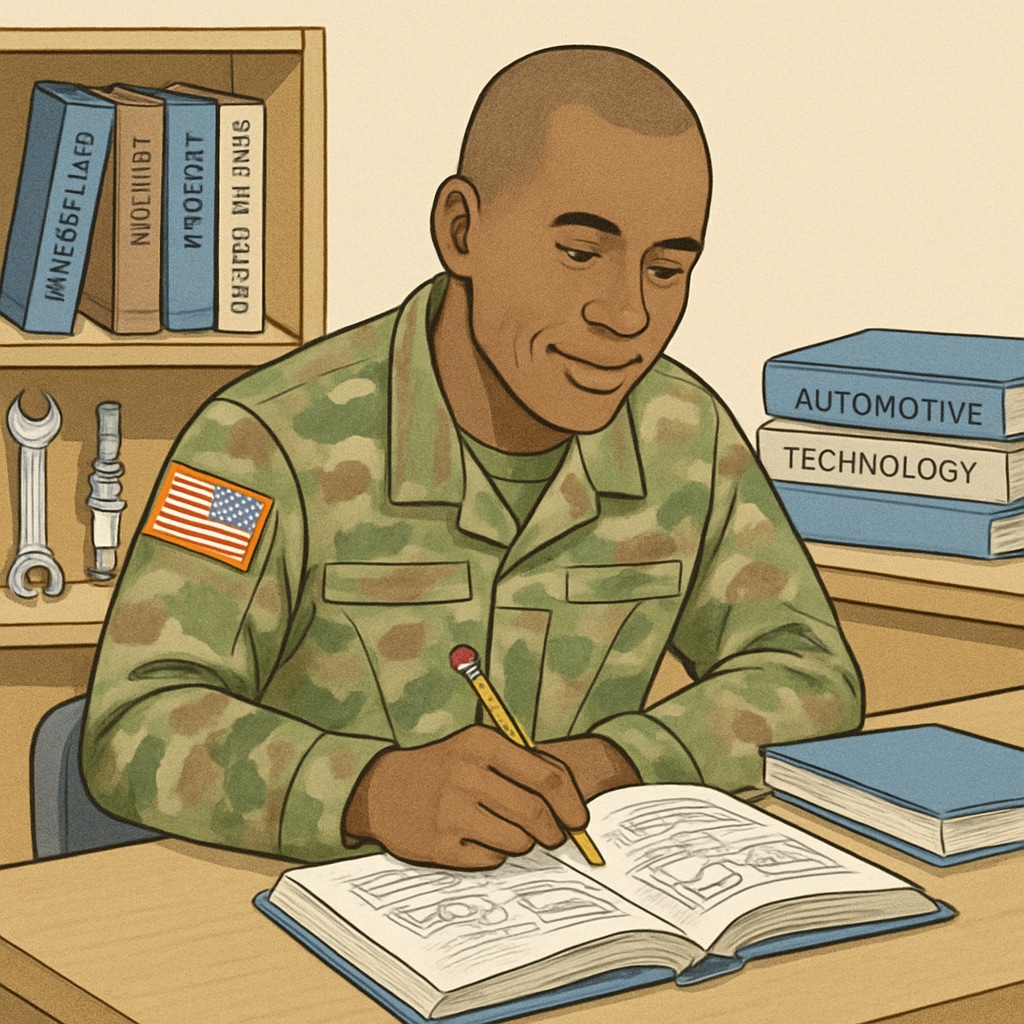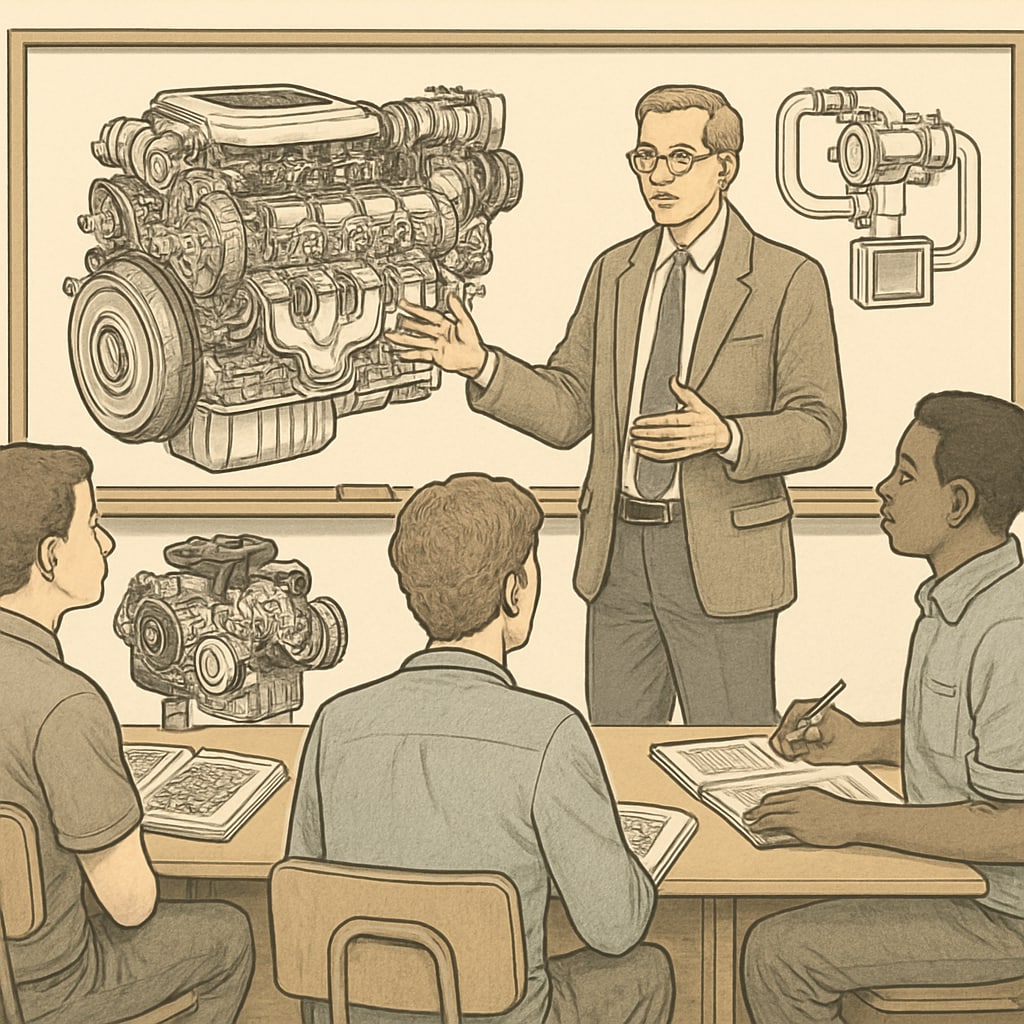Transitioning from an associate degree to a bachelor’s degree can be a transformative step, especially for military veterans looking to expand their career opportunities. If you hold an associate degree in automotive technology and are exploring how to transfer credits toward a bachelor’s degree, this guide is for you. By understanding the credit transfer process, leveraging your military background, and planning strategically, you can unlock new levels of academic and professional success.

Why Consider Advancing to a Bachelor’s Degree in Automotive Technology?
For individuals with a military background, moving from an associate degree to a bachelor’s degree in automotive technology offers significant advantages. A bachelor’s degree not only opens the door to higher-paying roles but also provides the technical and managerial skills needed for leadership positions in the automotive industry.
Additionally, many universities recognize the unique skills and discipline acquired during military service. This recognition can translate into academic credits, reducing the time and cost needed to complete your degree. According to the U.S. Bureau of Labor Statistics, careers requiring advanced education, such as automotive engineering or technical management, tend to offer better job security and growth potential.
Understanding the Credit Transfer Process
Credit transfer is a crucial step in advancing your education. Most colleges and universities allow students to transfer credits from an associate degree to a bachelor’s degree program. The key is to ensure that the courses you’ve completed align with the requirements of the bachelor’s program. Here’s a step-by-step overview:
- Evaluate Your Transcript: Obtain a copy of your academic transcript and review the courses completed.
- Research Transfer Policies: Different universities have varying policies on credit transfer. Look for institutions with generous transfer policies, especially for military veterans.
- Leverage Military Training: Many schools recognize military training as equivalent to college-level coursework. Submit your Joint Services Transcript (JST) or Community College of the Air Force (CCAF) transcript for evaluation.
- Meet with an Advisor: Work with an academic advisor to map out a transfer plan. They can guide you on which credits will transfer and any additional coursework needed.
For detailed information on how credit transfer works, you can refer to authoritative resources such as College Credit Transfer on Britannica.
Maximizing Your Military Experience for Academic Credit
Military veterans bring a wealth of experience that can be translated into academic credits. Many institutions participate in programs like the Servicemembers Opportunity Colleges (SOC) or the Military Credit Transfer Network. These programs evaluate your military training and convert it into equivalent college credits.
For example, if you’ve completed automotive-related training during your service, this could count toward technical courses in your bachelor’s program. Additionally, universities participating in the Yellow Ribbon Program may offer extra financial support, reducing your out-of-pocket expenses.
Choosing the Right Bachelor’s Program
When selecting a bachelor’s degree program in automotive technology, consider the following factors:
- Accreditation: Ensure the program is accredited by organizations like the Accreditation Board for Engineering and Technology (ABET).
- Military-Friendly Policies: Look for schools that offer flexible schedules, online courses, and dedicated support for veterans.
- Specializations: Some programs offer concentrations in areas like electric vehicle technology, automotive engineering, or technical management.
Programs with strong industry partnerships can also provide internship opportunities, helping you gain real-world experience while completing your degree.

Planning Your Career Path
Advancing your education is just one step in building a successful career. As a veteran with a bachelor’s degree in automotive technology, you’ll be well-positioned for roles such as:
- Automotive Service Manager
- Technical Consultant
- Automotive Engineer
- Fleet Operations Manager
Additionally, the automotive industry is evolving with the rise of electric and autonomous vehicles. Staying updated on industry trends through certifications and continued education will keep you competitive in the job market.
In conclusion, transitioning from an associate degree to a bachelor’s degree in automotive technology is a strategic move that can significantly enhance your career prospects. By understanding the credit transfer process, leveraging your military experience, and choosing the right program, you can build a strong foundation for future success.
For more insights on military education benefits and career planning, visit Military.com Education Resources.


